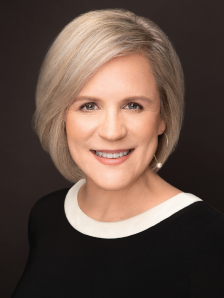5 Traps to Avoid When Evaluating Coaching Partners
By Ellie Hall, M.A., PCC, Vice President, Executive Coaching, MDA Leadership
Executive coaching can be a catalyst for leadership growth, but even the best-intentioned efforts sometimes fall short. Despite the evolution of evidence-based practices over the past decade, coaching providers often fall into familiar traps that limit a leader’s true behavior change, missing the mark on fulfilling desired outcomes.
When evaluating executive coaching options, watch for these common mistakes:
1. Relying on a One-Size-Fits-All Coaching Plan
Many providers package their coaching offerings based on leader levels or focus areas (e.g., building relationships, increasing influence, executive presence). However, this overused generic approach misses the pivotal leadership career moments each leader faces—whether preparing for succession, stepping into a new role, or deepening their current impact.
Research shows that customized coaching programs are 32% more effective than standardized ones in producing sustainable leadership behavior change (International Coaching Federation, 2023). To drive meaningful results, coaching must align with a leader’s career trajectory, leadership maturity, role complexity, and personal drivers.
At MDA Leadership, we distinguish between Readiness, Transition, and High-Performance Coaching to meet leaders where they are—and to align coaching with organizational selection, succession, and development strategies.
2. Taking a Narrow Approach to Growth
Many executive coaches lean too heavily on one aspect of development—such as fostering self-awareness or instructional teaching. Some over rely on the 70/20/10 development model (70% experiential learning, 20% learning from others, 10% formal education), popularized by the Center for Creative Leadership (CCL), which was never intended to be prescriptive (Lombardo & Eichinger, 1996).
True leadership growth requires an intentional blend of strategies:
- Assessment-driven self-insights
- Experimental skill building
- Microlearning
- Systemic support from a Growth Network of key peers and stakeholders
By connecting development activities to real business outcomes and anchoring discussions in the organization’s context, coaching can foster both relevance and impact.
3. Overemphasizing Theory Over Action
Executive coaching draws heavily from disciplines like psychology, adult learning theory, and organizational behavior. However, focusing too much on models, frameworks, and theoretical concepts often leaves leaders struggling to translate insight into action.
Neuroscience confirms that real neural rewiring—and thus behavior change—requires action, not just understanding (Rock, 2009). In other words, knowing what to do is not enough; leaders must practice new behaviors to hardwire them.
At MDA, we ground our coaching in evidence-based practices from neuroscience, but we prioritize practical, immediately applicable strategies that leaders can embed into their daily work to drive real, sustained impact.
4. Maintaining a Fixed Coaching Frequency
Coaching engagements often default to a 6-month plan with semi-monthly sessions. While this structure works, it does not suit every leader or the purpose of every coaching engagement.
For instance, newly transitioned leaders need accelerated learning to establish credibility quickly. McKinsey research shows that leaders who receive structured support during their first 90 days are 1.5 times more likely to succeed (“The Boss Factor,” McKinsey, 2021).
In our Transition Coaching, we start with weekly sessions to support momentum, then taper to semi-monthly and monthly meetings as stability grows. Additionally, it is often the path of least resistance to default to a six-month option, yet our purpose-driven coaching approach is based on what the leader’s goals demand—often extending beyond six months, especially for more senior leaders facing complex and ambiguous leadership challenges.
5. Measuring Progress Only by Satisfaction Scores
Many coaching programs rely heavily on subjective feedback from leaders, managers, and HR partners. While useful, satisfaction surveys can miss deeper insights into actual behavior change.
According to a Center for Creative Leadership study, while 90% of leaders rate coaching experiences positively, only 48% demonstrate measurable behavioral change without structured measurement (Anderson, Frankovelgia, & Hernez-Broome, 2009).
Instead of measuring progress solely at the competency level (i.e., “executive presence” or “collaboration”), we track specific, observable behaviors aligned with each leader’s growth goals. Using a multi-rater feedback approach, we create customized behavioral indicators developed jointly by the coach and leader to ensure progress is measurable, meaningful, and aligned to business needs.
Conclusion
Executive coaching is too important to leave to chance. By avoiding these common mistakes—standardization, narrow strategies, theory-only approaches, rigid frequency, and surface-level measurement—organizations and leaders can unlock the true power of coaching: meaningful behavior change that fuels both personal and organizational success.
References
- International Coaching Federation. (2023). Global Coaching Study.
- Lombardo, M.M., & Eichinger, R.W. (1996). The Career Architect Development Planner. Center for Creative Leadership.
- McKinsey & Company. (2021). The Boss Factor: Making the World a Better Place Through Workplace Relationships.
- Anderson, M.C., Frankovelgia, C., & Hernez-Broome, G. (2009). Coaching for Behavioral Change. Center for Creative Leadership.
- Rock, D. (2009). Your Brain at Work. Harper Business.

About The Author
Ellie Hall, M.A., PCC, Vice President, Executive Coaching, MDA Leadership brings over 35 years of experience as a leadership development expert, executive coach, and practice area leader working with global Fortune 100 organizations. Her expertise includes leadership development design and facilitation, executive coaching, senior-level team facilitation, innovation leadership, and culture change. Ellie is a trusted advisor and strategic partner with a history of providing high quality delivery across mid- and executive-level leadership. Reach Ellie at ehall@mdaleadership.com or LinkedIn.

